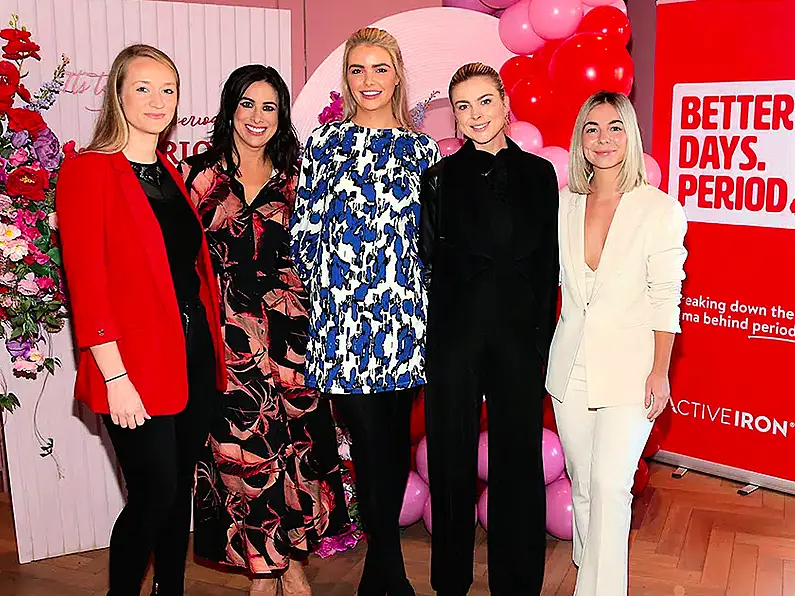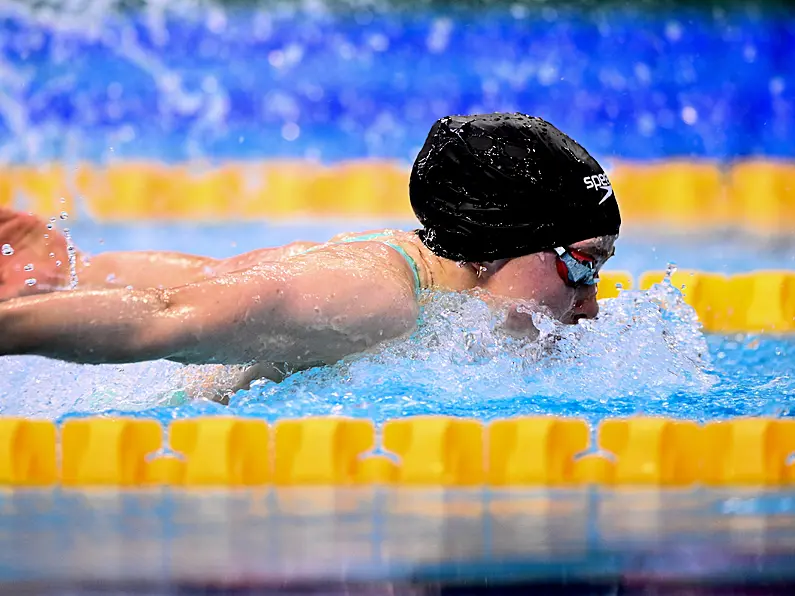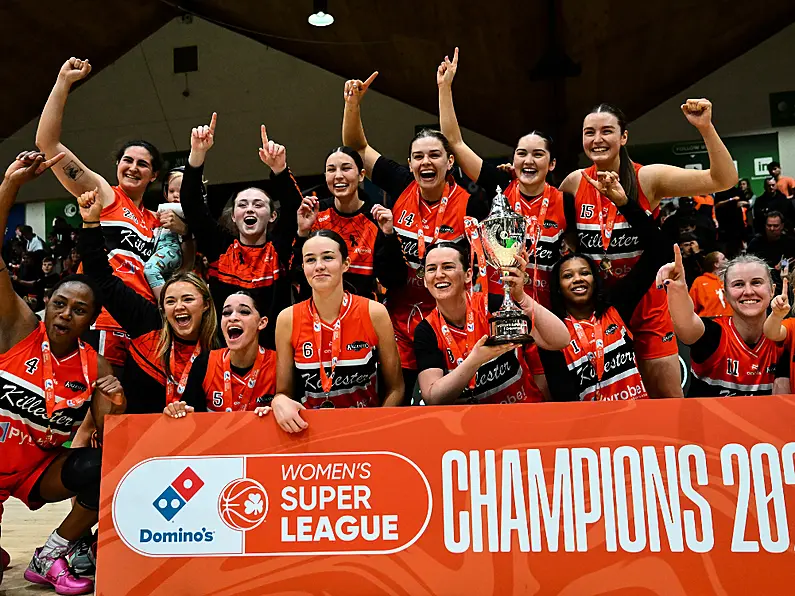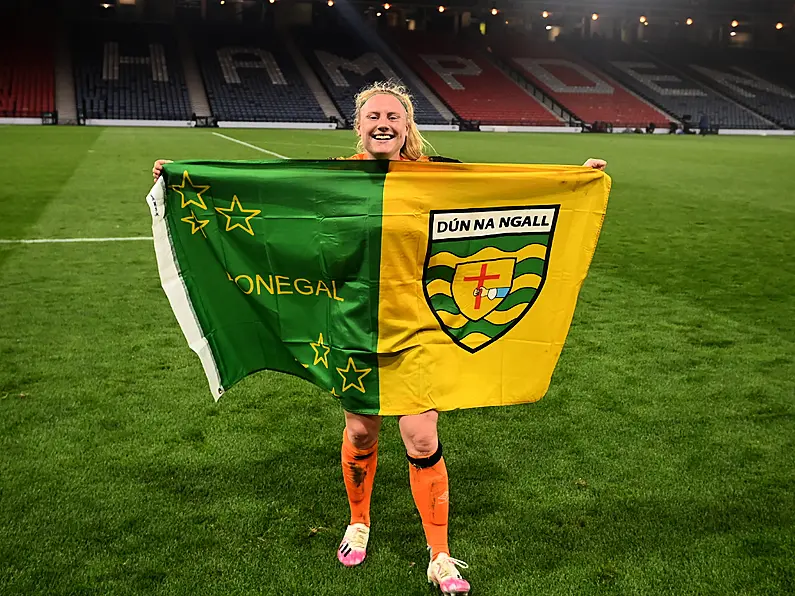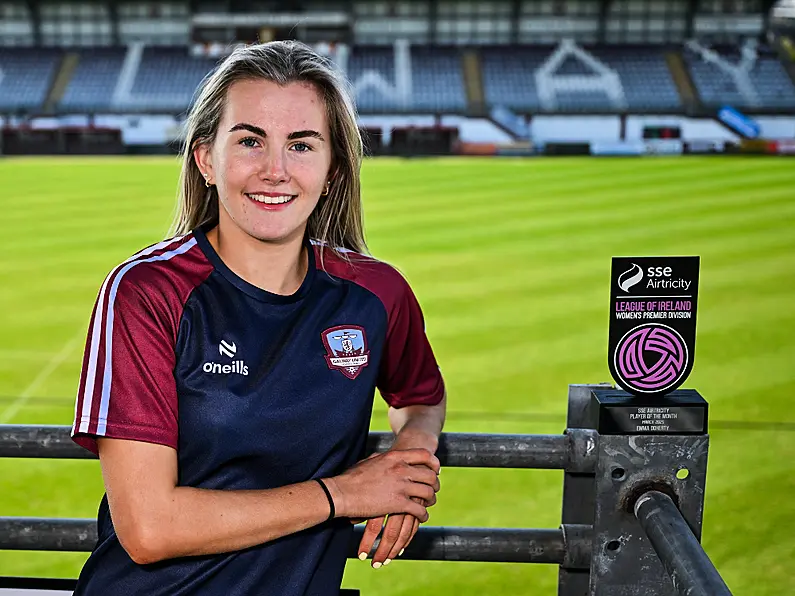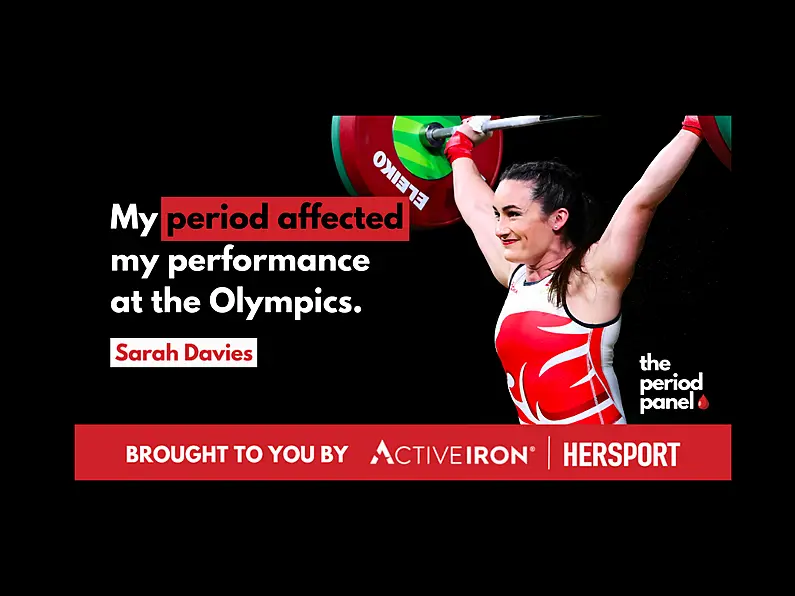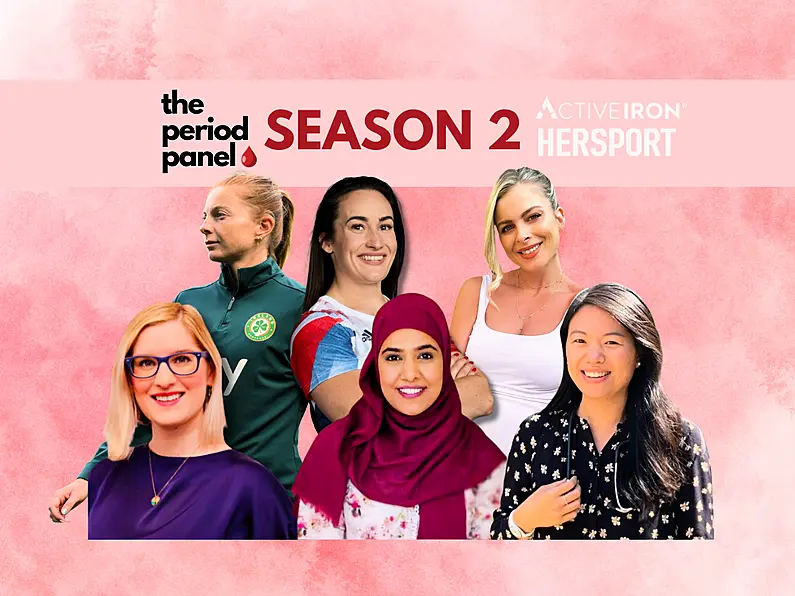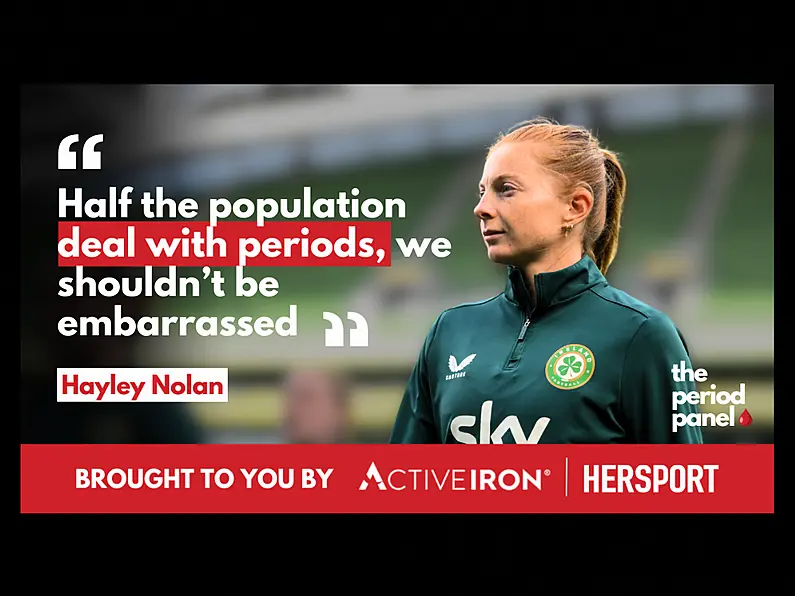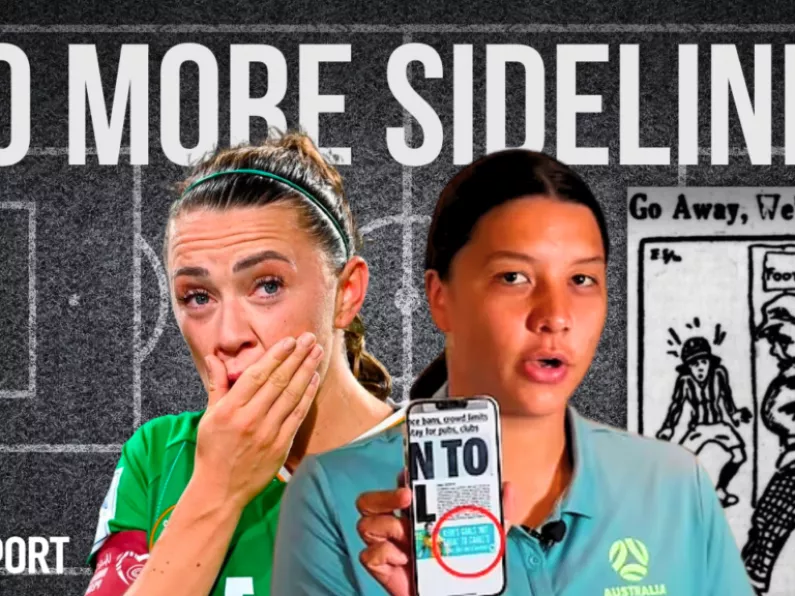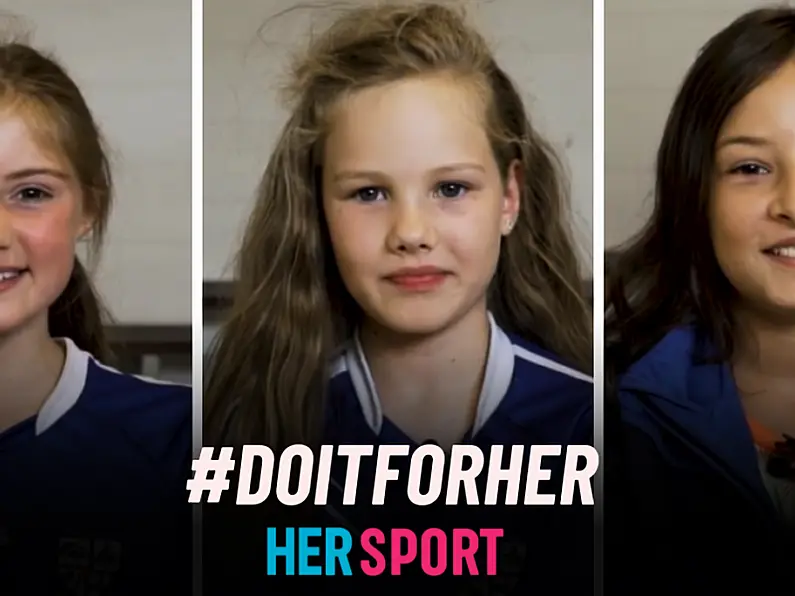HerSport recently had the privilege of getting invited to Active Iron’s Better Days. Period. event where our founder, Niamh Tallon, was featured on a panel alongside some of Ireland’s most influential women including Isabel Bartak-Healy (Izzy Showbizzy), Ivanna McMahon (Doctor and Miss Ireland 2022), Jess Redden (Pharmacist), and broadcaster and wonderful host, Lucy Kennedy.
The panel discussed all things periods, menopause, stigmas, and other women’s health issues. It is important for young females to keep the conversation open and eliminate shame.
Izzy spoke about how she was one of the first girls to get it when she was in 5th class! “It was kind of like a badge of honour because I was quite happy about it. I didn’t feel embarrassed.” Her mom kept the conversation about it open with her, so she never felt like it had to be a secret. “If you talk shamefully about something, It’s like you’re passing on the shame”
A few of the panelists had struggles with their periods when they were younger. “When I was younger, I would have had quite bad periods, quite painful, quite heavy, so I actually started on the contraceptive pill quite young” Ivanna said.
Niamh has a background in swimming, and when she got her first period she had to deal with the anxiety of swimming with a period. “I’m in my late 20s and a lot of my friends are still fearful about something like that, going swimming and if they go on holidays and if it comes down to sport or something like that.”
It is important to change the dialogue around periods, and to include men in the conversation. A lot of coaches are predominantly male, and although they have not had any experience with periods themselves, they need to be open about having a conversation, so girls in sport don’t feel embarrassed.
Niamh spoke about how an adult male friend of hers had been sheltered from the topic his whole life, and how his curiosity is peeking now at 25-years-old. “He has only sisters and never spoke about having a period with his sisters… he is now 25 working in a professional environment and has just now come up to two of his close female friends asking about it” A lot of men might not even be awkward about the conversation, but since they are kept out of the conversation, it is hard for them to be educated on the different effects of a period.
ActiveIron and some other workplaces are starting to implement workplace policies for women on their periods, where if a woman is not feeling well because of their period, they are allowed to take a day off due to their symptoms. Ivanna agrees with this initiative by saying “not everyone gets the same pains or maybe not as heavy- people don’t understand it, but it’s completely individualized. Everyone’s periods are completely different to them. How severe their pain is and what sort of symptoms they get. Just because your period isn’t bad, doesn’t mean someone else’s period isn’t bad enough that they just can’t work or are not able to do what they usually would.”
In a survey of a thousand Irish women conducted by Dr. Warren, 65% have said that they experience menstrual fatigue, and 60% say they put up with feeling ill during the cycle because it’s “just part of being a woman”. Some women from the audience have said that they frequently faint and one of the women did not get a diagnoses of endometriosis until she was in her 50s, and they did not know how to deal with the pain when they were younger simply because the plethora of symptoms were not talked about. Endometriosis is a disease of the female reproductive system in which the layer of tissue that normally covers the inside of the uterus is on the outside. This often results in heavy periods, pain far worse than normal, and infertility.
Jess says, “I would often berate myself for feeling tired, run down, sick, and I just kind of get on with it, and not actually address the symptoms. Things like fatigue, so obviously staying hydrated when you’re dehydrated actually contributes to fatigue. Exercise is another one- things like walking or swimming or yoga can actually be very beneficial and can give you energy as well.”
Izzy expanded on this, saying how women’s health should not be a private five-minute conversation that's talked about in transition year. “I hate hearing how if there’s period conversations that people are still beating around the bush or that we’re taking boys out of the class”
A member of the audience spoke about being a women’s health professional and getting diagnosed with endometriosis very late. She explained how she thought she was just being a bit of a wuss when it came to her period, but she is glad the conversation is being talked about more, so more women can understand their bodies and their period symptoms more and not feel ashamed of them.
Different cultures also have different experiences with periods. Niamh goes to talk about how “some cultures are kind of hesitant about using tampons and different products, so it is very much different in different pockets of the world.” It would be good to bring that into the conversation as well. Some people are not intrigued by the Menstrual Cup or Tampons, especially for young girls who are just beginning, it might be more intimidating than a pad.
Tracking your period is also a great way for young girls to feel more comfortable and prepared with their period. A lot of women use apps for this. Ivanna said “It's really good then if you do have really bad and heavy periods because let’s say you feel you need to go to the doctor to talk about this. You’re able to pull up the app and say ‘four months in a row now my cramps are so severe, I had really bad bleeding, my period lasts for XYZ amount of days”
This also helps when dealing with irregular periods. “One of the biggest contributing factors that has an impact on your cycle is stress. When you’re stressed, your body releases off cortisol, which is a negative hormone that gives negative feedback to your adrenal glands, so you’re not producing as much FSH” Jess explains how important it is to relax, stay hydrated and have a good diet when menstruating. Ivanna adds that, although it is very individualized, some people find the pill is really good and suits them, but it is important to talk to your doctor about what would be best fitted to your periods.
Thanks to Active Iron for hosting this important and informative panel!
